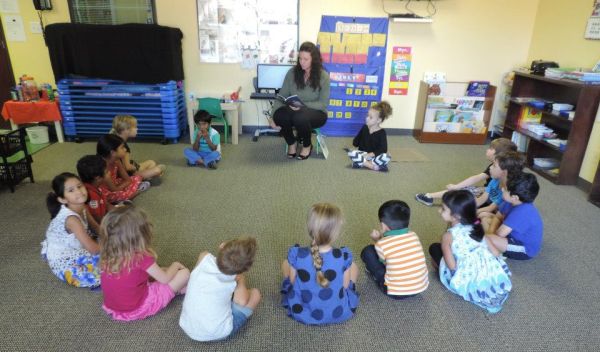
Do you remember when adults were the only ones sporting cell phones? Teenagers soon keyed in on the advantages and spent entire allowances for the chance to text under the desk. Soon middle school latchkey kids were seen carrying phones so they could keep in touch with their worried parents. Today, there are dozens of computer games geared toward eighteen-month-olds.
These days, it’s not a matter of whether your children will develop technological literacy, but when. Technology changes at a blistering pace and parental challenges increase accordingly. How young is too young to have a personal computer? How much screen time is too much? Some argue that screen time helps develop computer literacy. But what happened to a childhood of blocks, mud pies, baseball games and bike rides?
Consider the following pros and cons of a young child’s screen exposure as you contemplate how much technology is right for your family.
Give Your Child A Head Start
Toddlers using computer technology involving a mouse or a touch-screen can more fully develop a variety of critical touchstones for development. Since computers are now being used in many preschools and kindergartens, just being familiar with a keyboard and a mouse gives a rising toddler an advantage.
For slightly older children, several Head Start studies have shown that the monitored use of age-appropriate educational software does give an advantage to children in the areas of performance, cognitive development, and school readiness.
Too Much Of A Good Thing
For all the educational advantages computers can provide, there are definite drawbacks. According to Neilson’s Total Audience Report, American adults spend a shocking eleven hours per day engaged in electronic media. This is the behavior we’re modeling for our children. Yet spending too many hours in front of a screen can have physical, mental, and social drawbacks.
Many of the physical drawbacks of excessive screen time stem from the sedentary nature of game-playing. Long hours moving nothing but a mouse may contribute to weight problems. Though some specific types of fine motor skills may improve, outdoor time is sacrificed, and so are the activities necessary to develop gross motor skills like riding a tricycle, doing a pirouette, or hitting a baseball. Furthermore, many optometrists postulate that daily, long-term exposure to screens can put young children at risk for a childhood computer vision syndrome caused by eye strain, or even exacerbate progressive myopia.
There are drawbacks for mental development as well. The excessive sensory stimulation of a computer game—the non-stop action, bright or flashing colors, and sudden noises—may be too much for a young child to handle. Worse, your toddler may come to expect such stimulation and be less likely to enjoy more peaceful pursuits like picking daisies or making out animal shapes in clouds.
Socially, the drawbacks are self-evident. The development of social skills is a long, complex process. Skyping Nana, texting friends, and interacting with talking, animated creatures just doesn’t measure up to an afternoon making new friends in a park.
Everything In Moderation
Many of the disadvantages of a toddler’s use of technology can be mitigated by vigilant monitoring. Keeping the technological tools in the kitchen or family area is a smart way to keep tabs. Sticking to educational software, limiting screen time, and making sure your child has plenty of opportunities to explore the greater world will go a long way to ensuring your toddler reaps the benefits and avoids the pitfalls of ever-changing technology.





